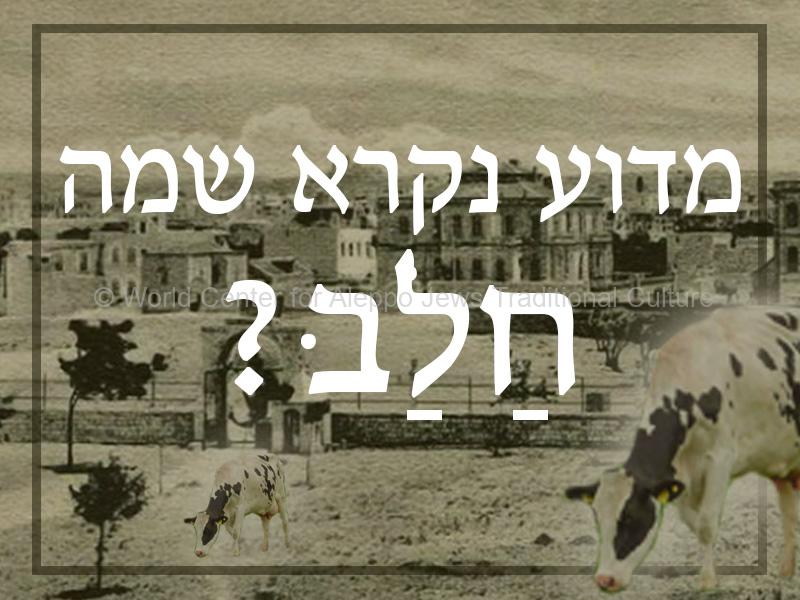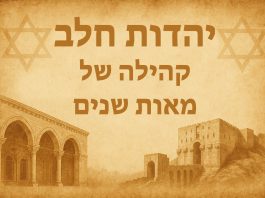“From the book ‘Jewish Aleppo Through the Ages,’ published by the Center for the Heritage of Aleppo Jews – 1993.”
| Traditions and Legends | Written by Abraham Cohen Tawil Z”L |
From the book ‘Jewish Aleppo Through the Ages |
In the history of any people or tribe, there exists a portion that is shrouded in obscurity, intertwined with folk legends, whose historical core is often substantial and at times minimal.
Concerning the origin of the name of the city of Aleppo, the legend recounts an interesting story: Why is it called Aleppo? Because our forefather Abraham passed through here with his flock and distributed milk to the poor. This narrative is also presented in the travelogue of Rabbi Petachiah of Regensburg in the following terms: “And we went from there to Aleppo, which is Aram-Zobah, for in the mountains were the flocks of our forefather Abraham, peace be upon him. And there were slopes descending from the mountain, from which he would distribute milk to the poor; hence, the city is called Aleppo.”
The Jews of Aleppo recount the story in a slightly different version: “Our forefather Abraham had a cow named ‘Shebah’ (white), and the phrase ‘chalav eshebah’ (milk from Shebah), which means ‘milk from Shebah,’ became the name of the city. Indeed, one of the city’s names is ‘Eshebah,’ which is found in dictionaries.”
Is there a historical kernel in this beautiful legend? Did our forefather Abraham actually pass through here on his journey from Haran to the land of Canaan, just as researchers assert he passed through Damascus and took from there “Eliezer, the steward of his household from Damascus”? This remains uncertain. However, the value of a legend does not lie in its historical accuracy but in its impact on those who believe in it. Consider the sense of pride that the Jews of Aleppo experience in believing that our forefather Abraham, the patriarch of the nation, passed through this location and that his virtuous deeds established the city’s name!
Another narrative that circulates among the Jewish community of Aleppo pertains to the ancient synagogue of this community. The legend states that this synagogue was built by Joab ben Zuriah, the commander of King David’s army, prior to the construction of the First Temple: “And Joab would carry large stones on his shoulders and ascend the ladder to place them in the wall of the synagogue. While building, Joab cried out and said: ‘Is it possible that the Holy One, Blessed be He, will forsake the Temple that Solomon will build and allow His presence to dwell in this house that I am constructing?! Immediately, a divine voice issued forth and proclaimed: ‘Joab, Joab, two Temples are destined to be destroyed, but your house will endure!'”
Imagine the sense of purpose the Jews of Aleppo felt when they entered this synagogue and witnessed, in fact, that both Temples—the First and the Second—were destroyed, while this house remains standing! A legend is a legend, but the significance of such legends lies in their functioning, for those who believe in them, as an internal light and a spiritual moral compass. Thus it was for the Jews of Aleppo.




